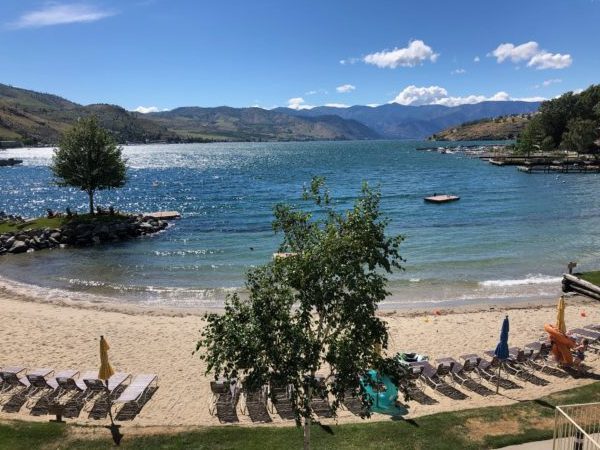Last week I went to Chelan for the rural hospital conference of the Washington State Hospital Association. I’m not arrogant enough to say that I’m a former organizer of this meeting, but I did my best to oversee its creation for a couple of years, and it is no joke. It’s not easy to keep people engaged and learning for four intense days, especially when you’re competing against the beauty of Chelan at Campbells Resort! But the WSHA and AWPHD team do a great job of it—they skillfully blend speakers, social events, networking time, and more speakers. I was just glad that this time, I only had to entertain people for an hour, instead of four days.
I was also lucky to share my hour with Sandeep Kaushik, my colleague from Sound View Strategies. In our session—“Making a Run for It: PHDs and Ballot Measures”—we were talking about how public hospital districts can serve their communities with levy-funded services. This is not just about the logistics of running campaigns, but about having an ongoing conversation with your community about the health needs of the district. We had fun talking about it, we got good questions, and no one threw any tomatoes. Win!

The overarching message that we had for them is that taxing is not something a (school, fire, library, hospital) district should do to its residents. It’s something the district and the population decide to do together. A good levy package is the result of a community conversation about need. The solution of a tax-and-services measure should be welcomed by the community, and not resented. Is that difficult? Sometimes. But sometimes the options are 1) have a two-year community conversation, put a levy on the ballot, and pass it, or 2) put a levy on the ballot, have it fail, have a community conversation, put another levy on the ballot, and maybe pass it.
Whether you put something on the ballot or not, these are such important conversations for health care providers to have with their communities. I hope we got people thinking about that.
I have to say it was also great to see some familiar faces! One of my favorite things about working for WSHA was getting to know hospital leaders and board members from across the state. They are navigating complex waters these days: health care finance models are bizarre, patients are complex, bacteria are persistent, staff management is challenging and technology even more so! But these folks are so great—just really leaning into all the big changes, while also focusing on healing each patient.
These folks make me feel good about our state, and energized me to follow in their footsteps: take care of the patient problem in front of me, and keep a wary eye on the horizon. (Oh, and take a walk now and then.)


